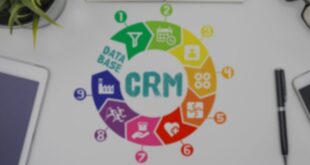🔍 Understanding the Importance of CRM Solutions
Running a small business comes with its own set of challenges. Managing customer relationships efficiently is crucial for the growth and success of any business. That’s where Customer Relationship Management (CRM) solutions come into play.
CRM solutions are powerful tools that enable businesses to streamline their sales, marketing, and customer service processes, ultimately improving customer satisfaction and driving revenue. In this article, we will explore the significance of CRM solutions for small businesses and how they can revolutionize your operations.
⭐ Benefits of Implementing CRM Solutions
Implementing CRM solutions offers numerous benefits to small businesses:
1. Enhanced Customer Data Management
CRM solutions provide a centralized database where businesses can store and manage customer information. By having all relevant data in one place, small businesses can gain valuable insights into their customers’ preferences, purchase history, and interactions, allowing for personalized marketing and better customer service.
2. Improved Sales and Marketing Efficiency
CRM solutions offer features like lead management, opportunity tracking, and sales forecasting, which empower small businesses to optimize their sales and marketing efforts. With the ability to track leads and analyze sales performance, businesses can identify bottlenecks, nurture leads effectively, and make data-driven decisions to increase conversions.
3. Streamlined Communication
Effective communication is key to building strong customer relationships. CRM solutions provide tools for email integration, automated messaging, and contact management, enabling small businesses to stay in touch with their customers seamlessly. This streamlines communication processes and ensures that no important interactions or follow-ups are missed.
4. Enhanced Customer Service
A satisfied customer is a loyal customer. CRM solutions offer ticket management systems, customer service portals, and case tracking capabilities, empowering small businesses to provide timely and efficient support. With access to customer interaction history and preferences, businesses can personalize their customer service, resolve issues promptly, and build long-lasting relationships.
5. Data Analysis and Reporting
CRM solutions provide robust reporting and analytics tools, allowing small businesses to track key performance indicators, measure the effectiveness of marketing campaigns, and identify trends. By analyzing data, businesses can optimize their strategies, identify areas for improvement, and make informed decisions to drive growth.
⚙ Choosing the Right CRM Solution for Your Small Business
Selecting the right CRM solution for your small business requires careful consideration. Here are some factors to keep in mind:
1. Scalability
Ensure that the CRM solution can accommodate your business’s growth and evolving needs. It should have the flexibility to scale as your customer base expands.
2. Ease of Use
Look for a CRM solution with a user-friendly interface and intuitive navigation. The easier it is to use, the quicker your team can adopt and maximize its benefits.
3. Integration Capabilities
Consider the CRM solution’s compatibility with other tools and software your business relies on, such as email marketing platforms or e-commerce systems. Seamless integration eliminates data silos and improves efficiency.
4. Customization Options
Each business has unique requirements. A CRM solution that allows for customization and tailor-made workflows ensures that it aligns with your specific business processes.
5. Customer Support
Check for the availability and quality of customer support provided by the CRM solution provider. Responsive support can save you time and help resolve any issues promptly.
🔎 Frequently Asked Questions (FAQ)
1. What is a CRM solution?
A CRM solution is a software tool that helps businesses manage their customer relationships, streamline processes, and improve customer satisfaction.
2. How can CRM solutions benefit small businesses?
CRM solutions enhance customer data management, improve sales and marketing efficiency, streamline communication, enhance customer service, and provide data analysis and reporting capabilities.
3. Are CRM solutions only for large businesses?
No, CRM solutions are beneficial for businesses of all sizes. Small businesses can leverage CRM solutions to enhance their operations, improve customer relationships, and drive growth.
4. Can CRM solutions integrate with existing tools and systems?
Yes, many CRM solutions offer integration capabilities, allowing seamless connectivity with other tools and systems, such as email marketing platforms or e-commerce systems.
5. How do CRM solutions improve customer service?
CRM solutions provide ticket management systems, customer service portals, and case tracking capabilities, enabling businesses to provide efficient and personalized support to their customers.
6. Can CRM solutions help with lead management?
Yes, CRM solutions often include lead management features that enable businesses to track leads, analyze their interactions, and nurture them effectively, ultimately increasing conversion rates.
7. Are CRM solutions secure?
CRM solutions prioritize data security and offer features like access controls, data encryption, and regular backups to protect sensitive customer information.
8. How do CRM solutions assist with sales forecasting?
CRM solutions provide tools to track sales opportunities, analyze historical data, and generate forecasts based on key performance indicators, helping businesses make accurate sales projections.
9. Can CRM solutions be accessed remotely?
Yes, many CRM solutions offer web-based or cloud-based access, allowing businesses to manage their customer relationships and operations remotely, anytime and anywhere.
📝 Conclusion
In conclusion, CRM solutions are invaluable for small businesses looking to optimize their operations and cultivate strong customer relationships. By leveraging CRM tools, small businesses can enhance customer data management, improve sales and marketing efficiency, streamline communication, deliver exceptional customer service, and gain valuable insights through data analysis.
When choosing a CRM solution, consider factors like scalability, ease of use, integration capabilities, customization options, and customer support. By selecting the right CRM solution, you can empower your small business to thrive in a competitive market and achieve sustainable growth.
💬 Disclaimer
The information provided in this article is for general informational purposes only. While we strive to keep the information up to date and accurate, we make no representations or warranties of any kind, express or implied, about the completeness, accuracy, reliability, suitability, or availability of the article or the information, products, services, or related graphics contained in the article for any purpose. Any reliance you place on such information is therefore strictly at your own risk.
In no event will we be liable for any loss or damage including, without limitation, indirect or consequential loss or damage, or any loss or damage whatsoever arising from the use of this article.
 Business Ideas Plan BUSINESSIDEASPLAN.COM
Business Ideas Plan BUSINESSIDEASPLAN.COM







